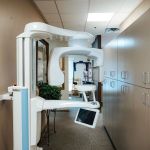
1. When Does Good Oral Hygiene Begin?
1.1 Before the First Tooth Appears
Many people assume that dental care starts when the first tooth breaks through, but in reality, good oral hygiene begins much earlier—before birth and certainly before the baby’s first tooth emerges. Pediatricians and dentists recommend cleaning an infant’s gums with a soft, moist cloth even in the first weeks of life. This practice not only removes milk residue but also gets babies used to oral care as part of their routine.
1.2 The Role of Parents in Early Habits
In the United States, studies have shown that parents who establish early dental habits tend to raise children with fewer cavities. One mother from Ohio, for example, shared how she used to massage her newborn’s gums daily. By the time her daughter turned one, brushing wasn’t a struggle—it was a familiar, even comforting activity. Stories like these emphasize that early habits are not just about teeth but about mindset and routine.
2. The First Tooth and Beyond
2.1 Starting Brushing at the Right Time
The American Academy of Pediatric Dentistry (AAPD) recommends that brushing should start as soon as the first tooth appears, usually around six months of age. Use a rice-sized smear of fluoride toothpaste and a baby toothbrush with soft bristles. Many parents worry about their child swallowing toothpaste, but the amount is so small it poses no risk when used correctly.
2.2 First Dental Visit Timeline
Another common question: When should children see a dentist for the first time? The answer may surprise you—by their first birthday or within six months after the first tooth appears. Early visits help identify any developmental concerns, teach parents proper techniques, and prevent problems before they start.
3. Building a Lifelong Routine
3.1 Teaching Independence in Oral Care
As children grow, their ability to brush and floss on their own improves, but guidance remains critical. Most kids lack the dexterity to clean their teeth properly until at least age seven or eight. Parental supervision during this time is key. One Texas dad recalled how he made up “tooth songs” with his kids each night, turning brushing time into a game. Now in their teens, they rarely skip brushing—not because they have to, but because they want to.
3.2 School-Age Support Systems
Public schools across America have also joined the oral health mission. Some districts in California offer free dental checkups and fluoride varnish applications. These initiatives reinforce what’s taught at home and ensure that underserved children don’t fall through the cracks. Dental health is a community effort, not just a personal one.
4. Oral Hygiene in Adolescence
4.1 The Teenager’s Dental Dilemma
Teenagers face a unique set of challenges: sugary diets, late nights, and the desire for independence often derail good habits. Orthodontic treatments like braces require even more discipline in brushing and flossing. If neglected, plaque can build up around brackets, leading to decalcification or cavities. That’s why it’s essential to renew conversations about oral hygiene during this stage and reframe it as self-care, not a chore.
4.2 Peer Influence and Awareness
Interestingly, peer influence can also work in favor of oral hygiene. A Minnesota high school student shared on social media how she created a “smile squad” club where members reminded each other to floss and scheduled group dental visits. It became a local trend—and their selfies were proof that good habits can also be cool.
5. Why It All Matters: The Long-Term Impact
5.1 Dental Health Is Whole-Body Health
Good oral hygiene is directly tied to overall health. Gum disease has been linked to heart problems, diabetes, and even complications during pregnancy. The earlier these habits are ingrained, the lower the risk of chronic dental issues and related health problems later in life. One dentist in Florida noted that adults who had early dental education as kids tend to require fewer procedures and have better overall health scores.
5.2 Economic Benefits of Early Care
According to the CDC, dental care is one of the most preventable forms of medical expense. A cavity caught early may cost $100 to fix, but untreated decay can lead to root canals or extractions costing thousands. Families who build strong dental routines early often avoid these costs entirely, freeing up resources for education, travel, or family fun.
6. Getting Support from Experts
Whether you're a new parent, a teen, or someone returning to better habits, getting the right support matters. Dentistry Toothtruth offers guidance, resources, and services tailored to your dental journey. With expert-reviewed content and professional recommendations, it’s your trusted partner in building a healthier smile—for life.







 Corona Family Dental Group3.0 (42 review)
Corona Family Dental Group3.0 (42 review) Genesis Dental of Taylorsville4.0 (842 review)
Genesis Dental of Taylorsville4.0 (842 review) Edmond Dental Center: Michael Chandler, DDS5.0 (404 review)
Edmond Dental Center: Michael Chandler, DDS5.0 (404 review) Cash Family Orthodontics4.0 (141 review)
Cash Family Orthodontics4.0 (141 review) Spring View Dental Care4.0 (1298 review)
Spring View Dental Care4.0 (1298 review) Acworth Smiles Dentistry4.0 (145 review)
Acworth Smiles Dentistry4.0 (145 review) The Importance of Oral Health Education During Pregnancy for a Healthy Pregnancy
The Importance of Oral Health Education During Pregnancy for a Healthy Pregnancy Best Tips for Brushing Your Teeth Properly for Healthy Gums: Essential Techniques for Oral Health
Best Tips for Brushing Your Teeth Properly for Healthy Gums: Essential Techniques for Oral Health Why Skipping Dental Checkups Can Lead to Bigger Oral Health Problems
Why Skipping Dental Checkups Can Lead to Bigger Oral Health Problems Advantages of Porcelain Dental Restorations
Advantages of Porcelain Dental Restorations How Can Diabetes Cause Tooth and Gum Problems? Preventing and Managing Oral Health Issues
How Can Diabetes Cause Tooth and Gum Problems? Preventing and Managing Oral Health Issues Healthy Habits for Promoting Good Oral Health and Hygiene: Tips for a Healthy Smile
Healthy Habits for Promoting Good Oral Health and Hygiene: Tips for a Healthy Smile